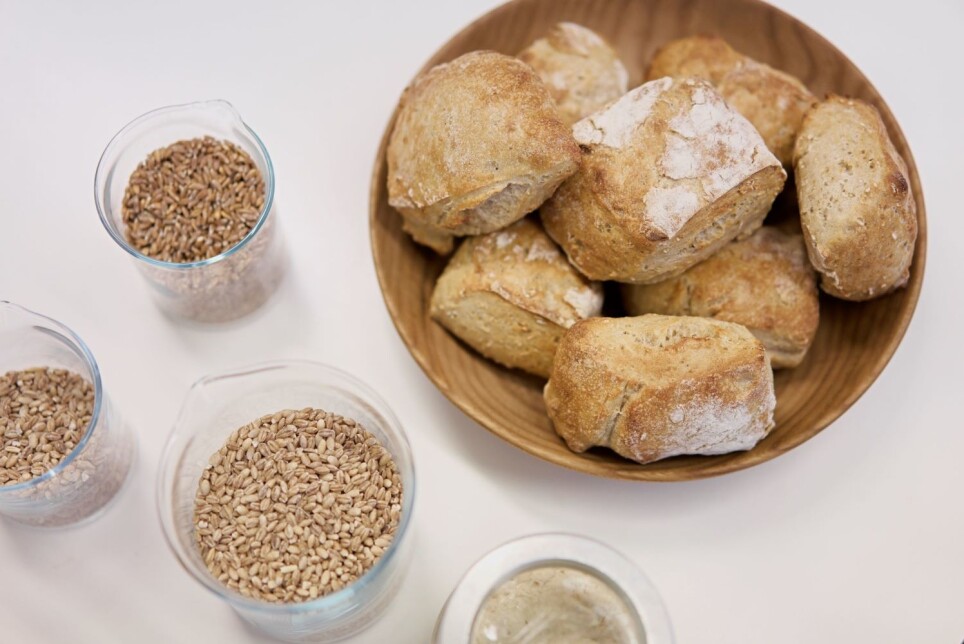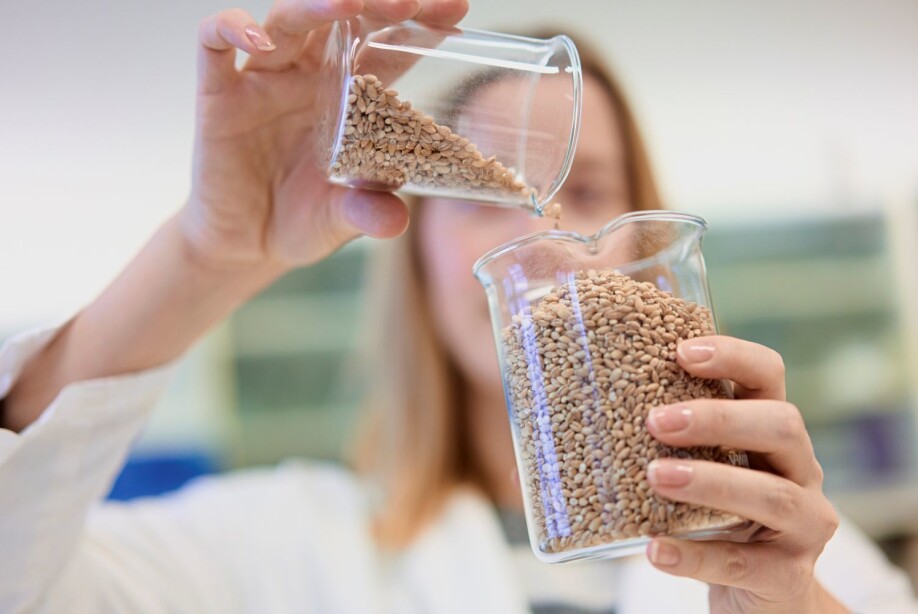THIS ARTICLE/PRESS RELEASE IS PAID FOR AND PRESENTED BY the Norwegian University of Life Sciences (NMBU) - read more

Do you believe you are gluten intolerant? You could be mistaken
More and more people are cutting out wheat from their diet. Many believe that they are gluten intolerant, but they may be reacting to something completely different in the wheat. Tora Asledottir is finding types of wheat that they can actually eat.
Many people say that they avoid gluten because they feel bloated, suffer from abdominal pain, contract eczema or experience fatigue. However, studies have been conducted on people who have diagnosed themselves as gluten intolerant.
It was found that most of the participants in the study showed no increased discomfort when eating gluten compared to eating gluten-free food.
Coeliac disease and intolerance
Gluten is a group of proteins found in grains. Among other things, these proteins are what enable yeast-leavened dough to rise.
At the same time, many people do not eat gluten. We have known about coeliac disease for a long time. But, in recent years, more and more people have also drawn their own conclusions about being gluten intolerant. They do not react as strongly as people with coeliac disease, but grains that contain gluten cause enough problems for them to exclude such grains from their diet.

Better with ancient wheat
Tora Asledottir is working on her doctoral degree at the Faculty of Chemistry, Biotechnology and Food Science (KBM) at NMBU. She is studying how other types of wheat can be used to make life and eating a bit easier for people who want to avoid gluten.
“The idea stems from a master’s thesis from two or three years back, in which we studied different types of wheat. Three of them were old types, which we classified as ‘ancestral wheat’ . Four were a bit more modern, refined types of wheat,” she explains.
For thousands of years, farmers have cross-bred wheat to create new types that yield more food.
But these new types can cause problems for some people. In the master’s project, the student used the laboratory to digest the seven types of wheat. The wheat was put through what is known as an in vitro digestion system – a simulation of the way human beings digest food. After it had been digested, the wheat was analysed.
“Our main finding was that the old types of wheat, the ancestral wheat, produced fewer of the reactive sequences that are involved in coeliac disease,” she says.
Perhaps other properties of ancestral wheat can benefit people with wheat intolerance?
Not just gluten
“We wanted to go even further and see whether we could identify other components of the grain, and not just gluten, that can cause the problems many people experience,” she says.
She has now selected three such components, the first of which is fructans. It is a form of carbohydrates in the plant. The fact that some people have trouble digesting fructans, is well documented. They are part of FODMAP – a group of fermentable sugars. This means that they are poorly absorbed in the small intestine, but break down through fermentation in the colon. Patients with irritable bowel syndrome (IBS) often benefit from a low-FODMAP diet.
“We will measure the content of fructans in these different types of wheat and look into whether the ancestral wheat contains less,” says Tora Asledottir.
The second component the researchers will study more closely is amylase-trypsin-inhibitors. This is a protein that inhibits two enzymes that break down food, thereby preventing full digestion of the food.
The final component is opioid peptides. They are small parts of the protein. When the gluten protein is broken down into smaller parts, it can release some of these peptides that bind to specific receptors in the intestines.
“This mechanism can cause digestion problems. The term ‘opioid’ comes from ‘opium’ . These small components act a bit like morphine: For example, they can inhibit muscle contractions in the intestines, which can lead to constipation,” Asledottir explains.

Why not just go gluten-free?
When you suffer from coeliac disease, you know that gluten is the problem, and you know precisely which reactions gluten will trigger.
But as regards other problems that people tend to blame gluten for, Tora Asledottir wants us to stop using the term ‘gluten sensitive’.
“We see that gluten is not the only problem,” she says. But can’t you just eat gluten-free food anyway, just to be on the safe side? After all, there are so many good gluten-free products on the market?
“Firstly, such products are much more expensive, and secondly, they are a bit less nutritious. Gluten-free flour contains less of some nutrients, such as proteins. And a lot of these products are imported. One of the reasons we applied for funding for this project is that the knowledge we gain can help to shape priorities relating to strengthening Norway’s resilience for food security,” she says.
“If ancestral wheat contains less of these problematic components, it’s simply a matter of cultivating more of it and selling it as wheat, so that consumers don’t have to buy products intended for people with allergies,” says Asledottir.
References:
Tora Asledottir et.al.: Ancestral Wheat Types Release Fewer Celiac Disease Related T Cell Epitopes than Common Wheat upon Ex Vivo Human Gastrointestinal Digestion. Foods, 2020.
Hanna Fjeldheim Dale et.al.: The effect of a controlled gluten challenge in a group of patients with suspected non‐coeliac gluten sensitivity: A randomized, double‐blind placebo‐controlled challenge. Neurogastroenterology & Motility, 2018. (Summary)
Gry Irene Skodje et.al.: Fructan, Rather Than Gluten, Induces Symptoms in Patients With Self-Reported Non-Celiac Gluten Sensitivity. Gastroenterology, 2018.
———
Read the Norwegian version of this article at forskning.no
See more content from NMBU:
-
Shopping centres contribute to better health and quality of life
-
We're eating more cashew nuts – and the consequences are serious
-
Do young people with immigrant parents have better health?
-
Who’s picking your strawberries this summer?
-
Can coffee grounds and eggshells be turned into fuel?
-
Rising housing costs fuel inequality in Norway





































